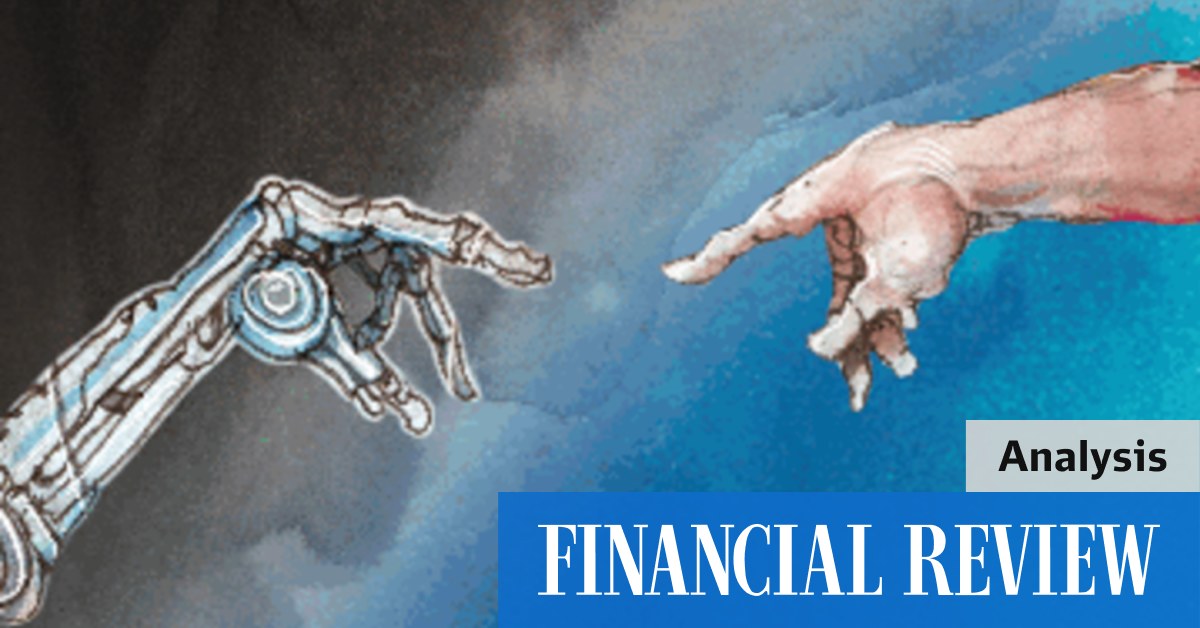AI Economy: Will Labor's Tax Hit AI Wealth?
The rise of artificial intelligence (AI) is reshaping the global economy at an unprecedented pace. From automating mundane tasks to driving innovation in complex sectors, AI's impact is undeniable. But as AI-driven businesses amass significant wealth, a crucial question emerges: should labor's tax burden be shifted to account for this new form of economic power? This complex issue involves ethical considerations, economic feasibility, and the very definition of wealth in the age of AI.
The Expanding AI Economy and the Growing Wealth Gap
The AI economy is booming. Tech giants are investing billions in AI research and development, and countless startups are leveraging AI to disrupt traditional industries. This rapid growth is generating immense wealth, largely concentrated in the hands of a few tech companies and their investors. This concentration of wealth exacerbates existing inequalities, leading many to question the fairness of the current tax system.
Traditional labor taxes, levied on wages and salaries, are becoming increasingly inadequate to fund vital public services as a larger portion of economic output is generated by automated systems, reducing the traditional workforce and the associated tax revenue.
Key Concerns:
- Decreased tax revenue from human labor: As AI automates jobs, fewer individuals are earning wages subject to income tax, creating a potential shortfall in government revenue.
- Concentration of wealth: The profits from AI-driven businesses are often concentrated in the hands of a small number of individuals and corporations, widening the wealth gap.
- Difficulty in taxation: Accurately taxing the profits generated by AI is challenging. Determining the "value" created by AI and attributing it to specific entities is complex and often requires novel tax frameworks.
Exploring Potential Solutions: Taxing AI Wealth
Several proposals aim to address the tax implications of the AI economy. These proposals generally fall under two broad categories: taxing AI-generated profits directly or implementing broader economic adjustments.
Direct Taxation of AI:
- Taxes on AI-driven revenue: This involves directly taxing the revenue generated by AI systems, similar to corporate income tax. However, accurately measuring this revenue and attributing it solely to AI can be problematic.
- Taxes on AI-related intellectual property: Taxing the intellectual property (IP) rights associated with AI algorithms and software could be another approach. This is challenging due to the complexities of IP valuation and the global nature of AI development.
- Robot taxes: While controversial, a "robot tax" – a tax on the use of AI-powered robots in the workplace – has been proposed in some circles. This approach faces strong opposition from businesses worried about competitiveness.
Broader Economic Adjustments:
- Universal Basic Income (UBI): As AI replaces human labor, a UBI could provide a safety net for individuals displaced by automation. This approach doesn't directly tax AI but addresses the social consequences of AI-driven job displacement.
- Wealth taxes: A wealth tax, targeting the overall net worth of individuals and corporations, regardless of its source, could help redistribute wealth more equitably. This is a politically contentious issue, with concerns about implementation and potential capital flight.
Navigating the Ethical and Practical Challenges
Implementing new taxes on AI-generated wealth presents significant challenges. Defining what constitutes "AI-generated wealth" and how to accurately measure and tax it requires careful consideration. International cooperation is crucial to prevent tax avoidance and ensure a level playing field for businesses worldwide. Furthermore, the ethical implications of such taxes must be thoroughly debated, balancing the need for equitable distribution of wealth with the need to foster innovation and economic growth.
The Future of Taxation in the AI Era
The question of how to tax the AI economy is not just an economic one; it’s a social and ethical imperative. As AI continues to transform our world, adapting our tax systems to fairly distribute the wealth it generates will be crucial to building a just and prosperous future for all. The debate is far from over, and finding the right balance between incentivizing innovation and ensuring equitable wealth distribution will require ongoing discussion and collaboration between governments, businesses, and the public.
Call to Action: What are your thoughts on the taxation of AI wealth? Share your perspectives in the comments below! Let's discuss this vital issue shaping the future of our economies.

